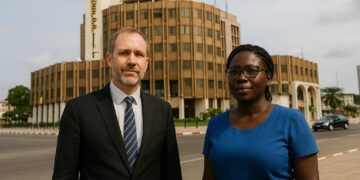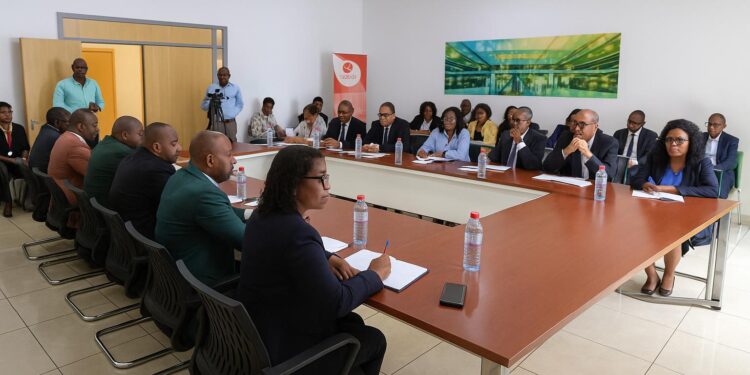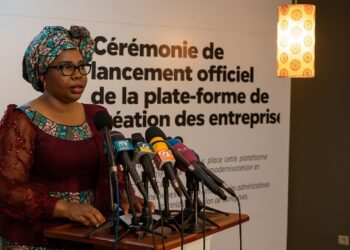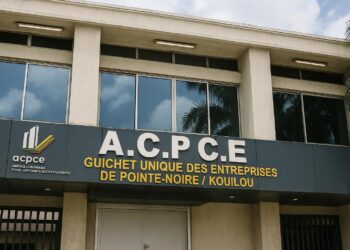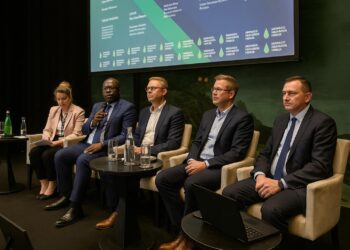Identification rules under renewed scrutiny
Mobile telephony remains central to Congo-Brazzaville’s digital ambitions, yet the identification of users—obligatory since Decree 554 / 2010—has slipped sharply. An ARPCE survey released in Brazzaville on 21 October finds just 9.13 % of SIM cards fully compliant in 2025, compared with 13.2 % a year earlier (ARPCE 2025 report).
The regulator views identification as the first line of defence against cyber-fraud, money-laundering and illicit trafficking. Similar mandates exist across the Central African Economic and Monetary Community, and the International Telecommunication Union classifies such policies as critical to trusted digital ecosystems (ITU “Trust in ICT”, 2023).
Field survey reveals geographic contrasts
Teams from the Directorate of Electronic Communications Networks and Services visited eighteen localities between 23 July and 28 August. Outside Brazzaville and Pointe-Noire, only Kinkala and Djambala posted perfect compliance. In urban markets, inspectors repeatedly purchased pre-activated SIMs without presenting ID, contravening national rules.
Retail practices proved lax in Dolisie, Ouesso, Pokola, Ngo, Tchamba-Nzassi, Madigou Kayes, Loudima, Bouassa, Loutété and Nkayi. Sellers, often informal micro-enterprises, cited customer impatience and limited digital tools as reasons for bypassing registration steps. ARPCE argues that such gaps jeopardise nationwide databases designed to assist law-enforcement and public-health messaging.
Security, fintech and investor stakes
Brazzaville and Pointe-Noire concentrate more than 60 % of mobile traffic and are considered hotspots for SIM-based fraud, according to the Congo Computer Emergency Response Team. Weak identification can enable phishing, fake mobile-money wallets and cross-border SIM-box operations that distort interconnection revenues.
Investors also monitor compliance indicators when valuing telecom assets, as unregistered users raise churn risk and complicate customer analytics. The World Bank’s Digital Economy Diagnostic for Congo flagged robust ID systems as a prerequisite for scaling e-government and fintech, sectors targeted in the National Development Plan 2022-2026.
Regulator sets a tight remedial timetable
Addressing operators on 21 October, ARPCE Director-General Louis-Marc Sakala granted a two-month grace period to align with the decree. He emphasised national security considerations and signalled that repeat breaches could trigger fines, service suspensions or licence reviews, powers already upheld by the national communications code.
Benjamin Mouandza, head of networks at ARPCE, described the audit as routine yet vital. He expects operators to deploy biometric kits, geo-tagged app uploads and real-time checks with the civil registry. Similar measures in Rwanda and Ghana improved compliance above 85 % within 18 months, according to GSMA case studies.
Operators acknowledge gaps and outline fixes
Speaking for the industry, Airtel Congo CEO Djibril Tobe accepted the findings and promised rigorous corrective actions. He pointed to fragmented distribution chains dominated by small vendors earning narrow margins, making constant oversight difficult. Airtel will introduce performance-linked contracts and suspend retailers who repeat infractions.
MTN Congo and Congo Telecom echoed the commitment, with executives hinting at shared, cloud-based enrolment platforms to reduce duplication. Operators are also testing USSD prompts that block outgoing calls until subscribers validate national-ID numbers, a feature already active in certain East African markets.
Digital identity reforms gather momentum
Beyond immediate enforcement, policymakers see the episode as a catalyst for broader digital-identity reforms. The Ministry of Posts, Telecommunications and Digital Economy is finalising a draft bill on electronic signatures and data protection, aiming to harmonise with the African Union Convention on Cybersecurity (Malabo Convention).
Donor-backed pilots explore integrating SIM registration databases with the national civil registry, a move that could streamline voter rolls and social-transfer programmes. The African Development Bank has signalled potential financing through its Digital Economy Enabling Facility, contingent on measurable progress in mobile-ID integrity.
Balancing compliance costs and market growth
Industry analysts caution that aggressive deadlines might inflate operational costs. Retail agents often operate in areas with intermittent power and limited broadband, complicating digital onboarding. Nevertheless, consultancy Analysys Mason notes that greater trust can unlock high-value services such as mobile insurance, cross-border remittances and Internet-of-Things applications.
Congo’s mobile penetration hovers around 85 % of the population, yet average revenue per user remains below the regional mean. By cleaning up subscriber databases, operators can personalise offers, reduce grey traffic and negotiate better interconnect terms, ultimately supporting fiscal revenues through higher taxable profits.
What to watch in the next quarter
Stakeholders will track whether the two-month window spurs tangible changes. ARPCE plans spot checks using mystery-shopping techniques and will publish a compliance leaderboard on its website. Early adopters of biometrically verified SIM sales may secure goodwill from regulators when new spectrum allocations are discussed.
For investors, the episode underscores the importance of environmental, social and governance metrics in assessing telecom opportunities. Effective identification frameworks mitigate money-laundering risk, a criterion increasingly scrutinised by global capital markets and development-finance institutions positioning to fund Congo’s fast-growing digital backbone.




















